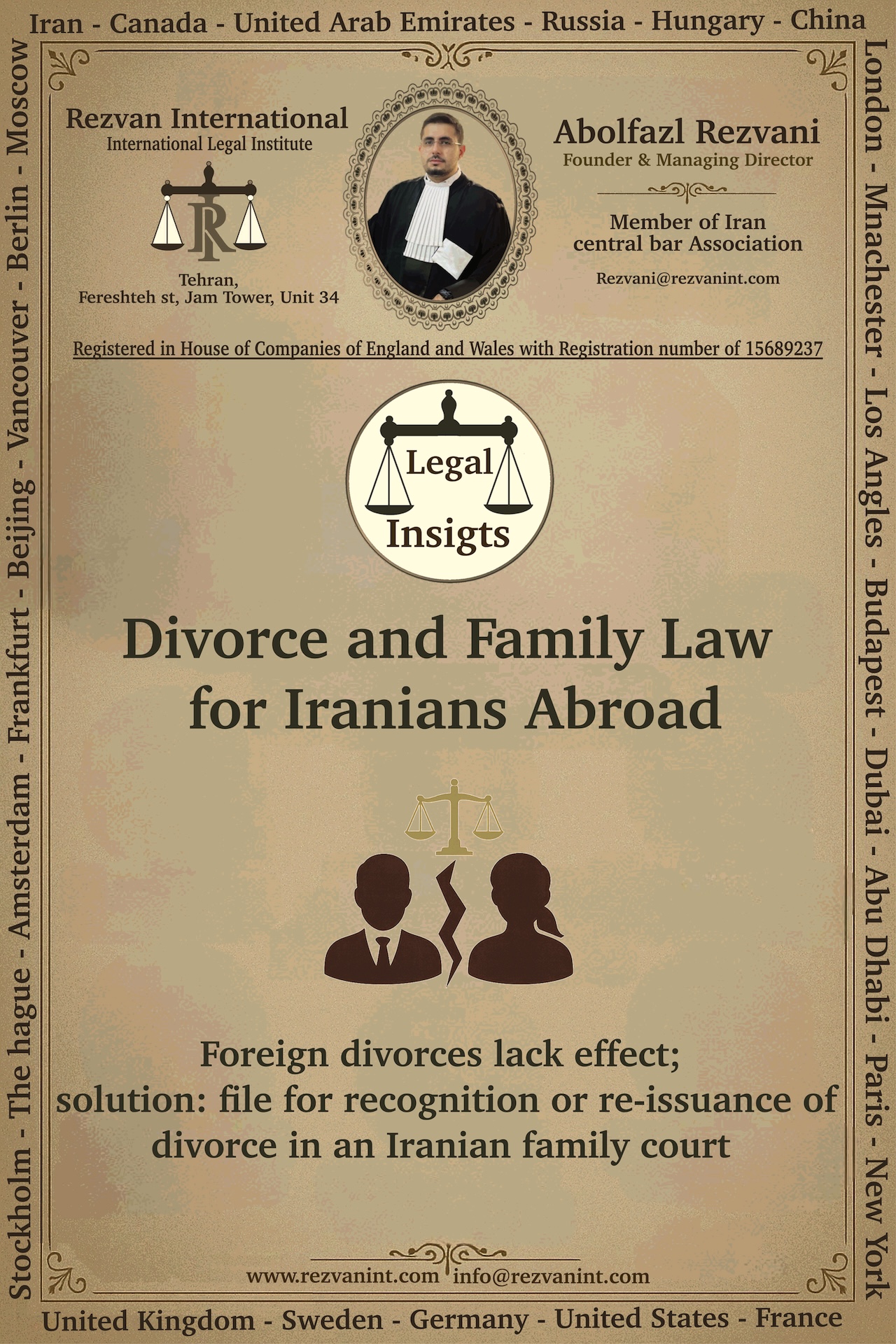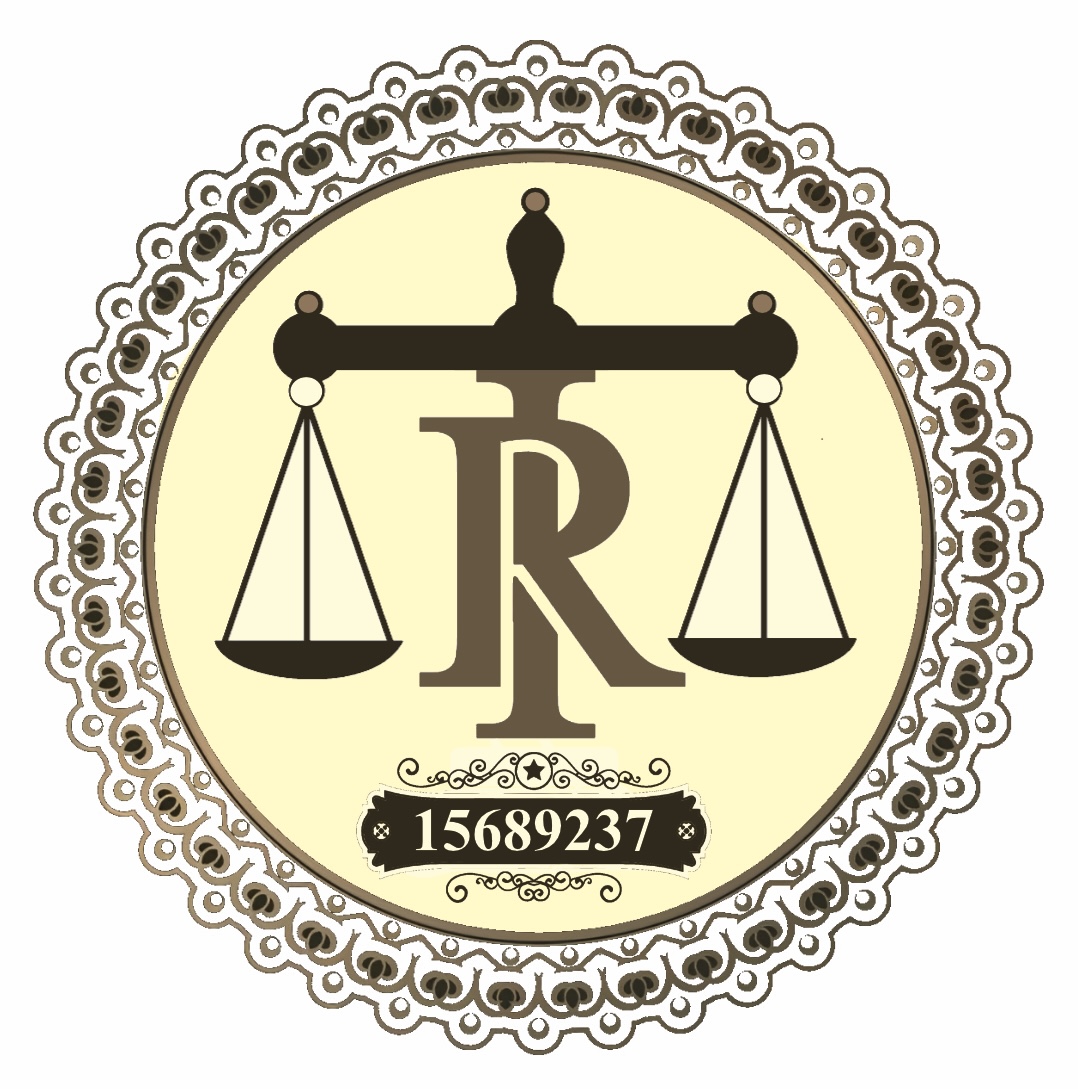Introduction
Divorce and Family Law for Iranians Abroad
Divorce is one of the most sensitive and complex legal issues faced by Iranians living outside Iran. Many couples obtain divorce decrees abroad, believing that this is sufficient for their legal status everywhere. However, under Iranian law, foreign divorce judgments are not automatically recognized. This creates significant complications when it comes to civil records, remarriage, custody of children, or financial rights.
It is therefore essential for Iranians abroad to understand the necessity of obtaining legal recognition of divorce in Iranthrough the family courts.

Legal Framework of Divorce in Iran
Divorce in Iran is regulated by the Civil Code of Iran (Qanun-e Madani "قانون مدنی") and family law provisions, which are rooted in Islamic jurisprudence. Even if a divorce takes place abroad, for it to have effect in Iran, it must either be:
-
Recognized by an Iranian family court, or
-
Re-issued through a new divorce decree by the Iranian court, based on the foreign judgment.
Without such a ruling, the marriage remains legally valid in Iranian civil records, and both spouses continue to be considered married under Iranian law.
Role of Iranian Courts
Only Iranian courts have the authority to alter marital status in official records. The family courts (Dadgah-e Khanevadeh "دادگاه خانواده") are specifically responsible for issuing divorce decrees and related rulings.
Consulates may assist by authenticating documents or notarizing a Vekalat-Nameh "وکالتنامه" (power of attorney), but they cannot issue or register a divorce. This means that Iranians abroad must either travel to Iran themselves or appoint a lawyer to act on their behalf.
Key Steps in an Inheritance Case
1. Filing a Petition (Darkhast-e Talagh "درخواست طلاق")
The process begins with filing a petition in an Iranian family court. The petitioner (either husband or wife) must submit the foreign divorce decree, translated into Persian, and legalized by the Iranian consulate in the country where the divorce was granted.
2. Court Review
The court examines whether the foreign divorce is consistent with Iranian law. If acceptable, the court either recognizes the foreign decree or issues its own ruling.
3. Registration of Divorce (Sabt-e Talagh "ثبت طلاق")
Once the Iranian court issues a decision, it is forwarded to the Civil Registration Organization (Sazman-e Sabt Ahval "سازمان ثبت احوال"), which records the divorce in the spouses’ shenasnameh "شناسنامه" (Iranian ID booklet).
4. Custody and Financial Matters
Alongside divorce recognition, issues such as child custody (Hizanat "حضانت"), alimony (Nafaqeh "نفقه"), and dowry (Mehrieh "مهریه") may be adjudicated by the court.
It is important to know;
Challenges for Iranians Abroad
-
-
Unrecognized Status
Without recognition, the individual remains legally married in Iran, making remarriage impossible and causing inheritance or custody disputes. -
Document Authentication
Foreign court judgments must be fully authenticated—translated, notarized, and legalized—before being accepted by Iranian courts. -
Conflicting Laws
Foreign divorce rulings may grant equal rights to spouses, while Iranian law has its own specific rules, especially regarding financial obligations and custody. -
Time and Cost
The recognition process may take months, and often requires the assistance of a local lawyer in Iran.
-
Practical Solutions
-
-
Appoint a Lawyer (Vakil "وکیل") in Iran: The most effective method for Iranians abroad is to delegate the process to a trusted attorney.
-
Consular Assistance: Prepare and notarize powers of attorney at the Iranian consulate to empower the lawyer.
-
Ensure Proper Translation: Submit certified Persian translations of the foreign divorce decree to avoid delays.
-
Address Custody and Financial Claims Early: Combine divorce recognition with requests for custody or financial enforcement to save time.
-
And finally;
Conclusion
For Iranians abroad, divorce is not legally complete until it is recognized by an Iranian family court. A foreign divorce decree alone is insufficient under Iranian law, and without registration, spouses remain legally married in Iran.
By appointing a qualified lawyer and ensuring proper documentation, individuals can obtain recognition of their divorce, update their records, and secure their legal rights in matters of remarriage, custody, and financial claims.
Ultimately, legal recognition of divorce in Iran is the key step that transforms a foreign judgment into a binding and enforceable status under Iranian law.
Service Offerings
© 2024 All Rights Reserved by rezvanInt




